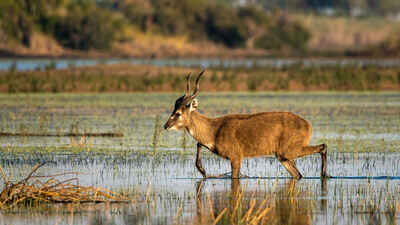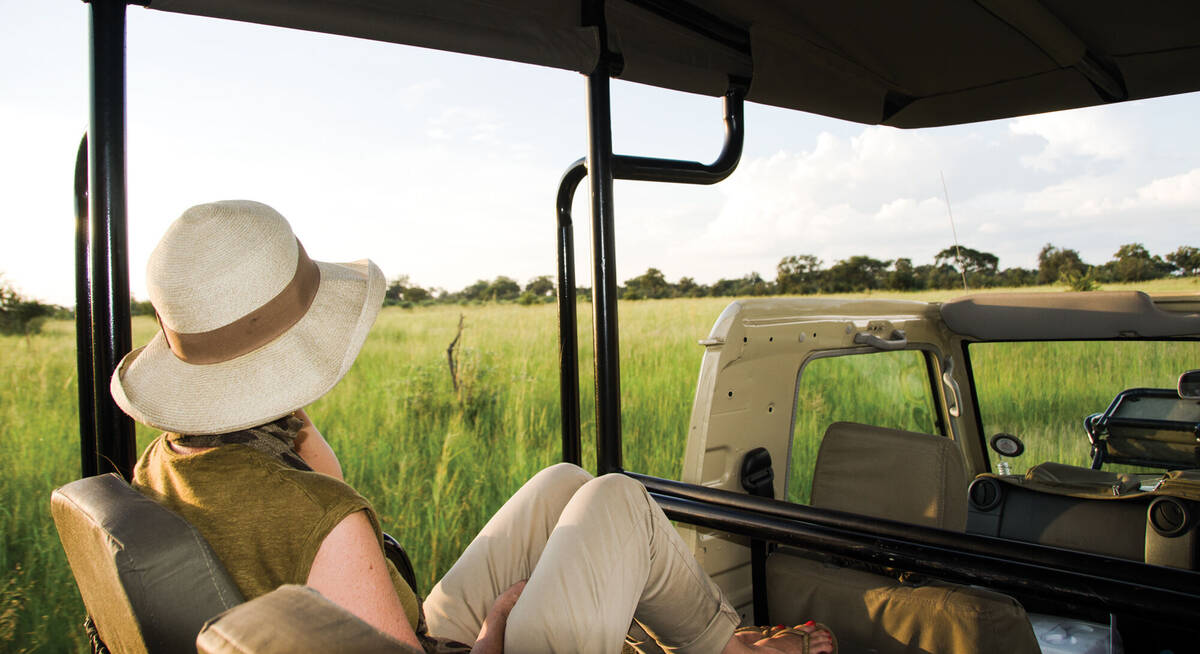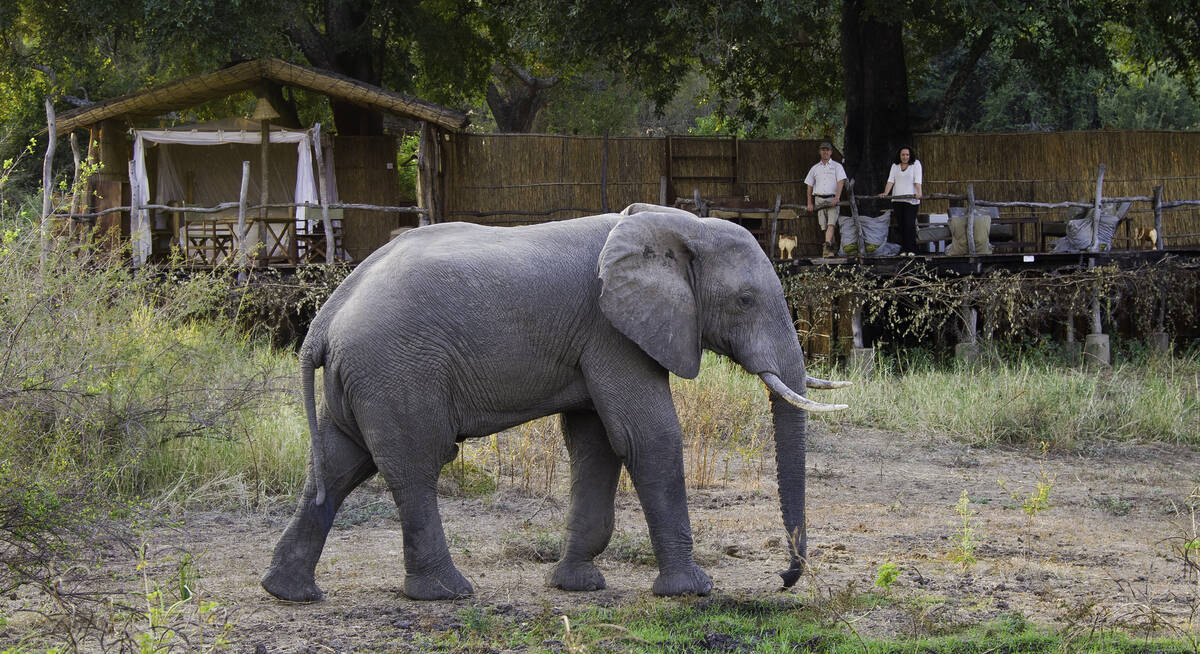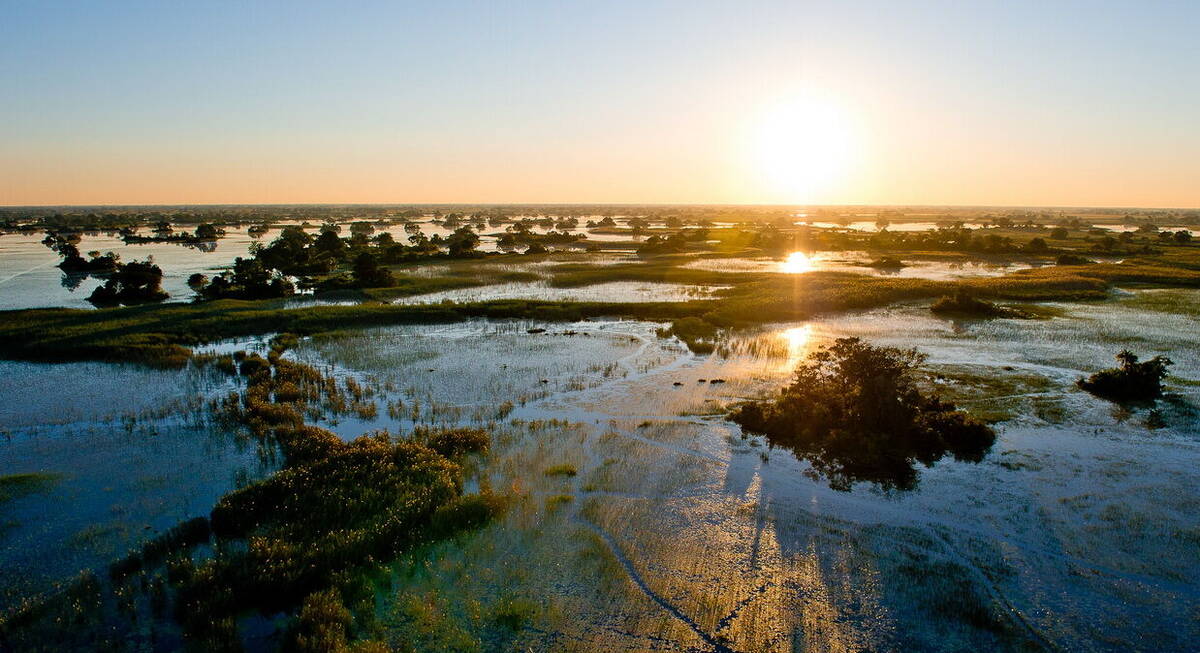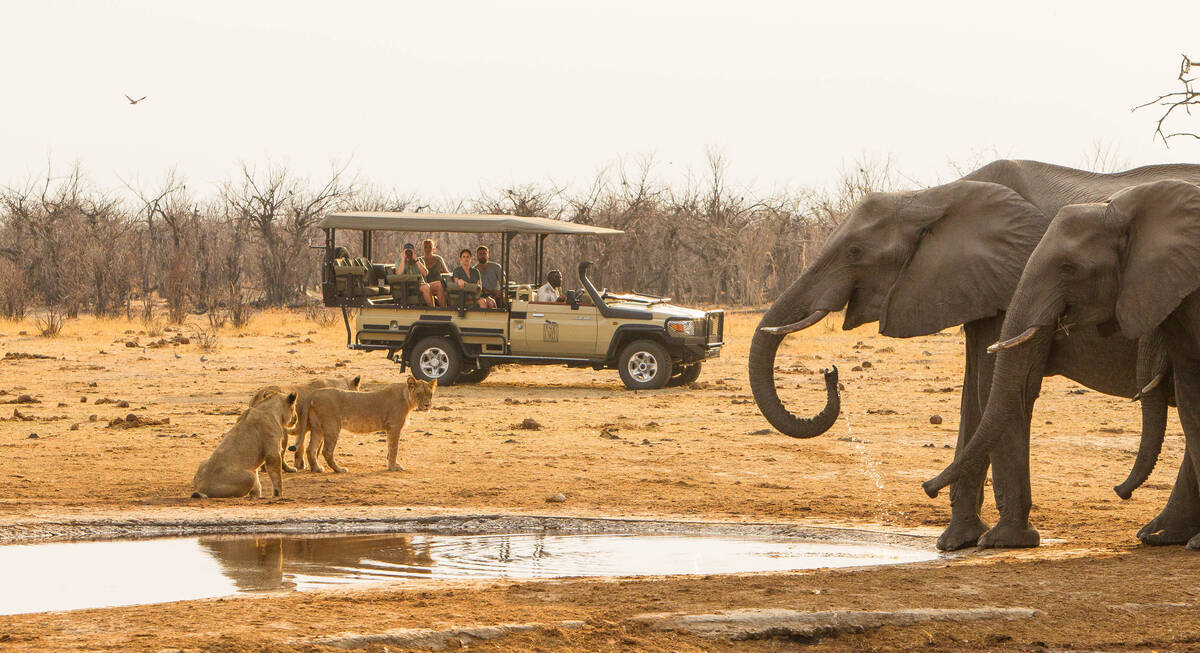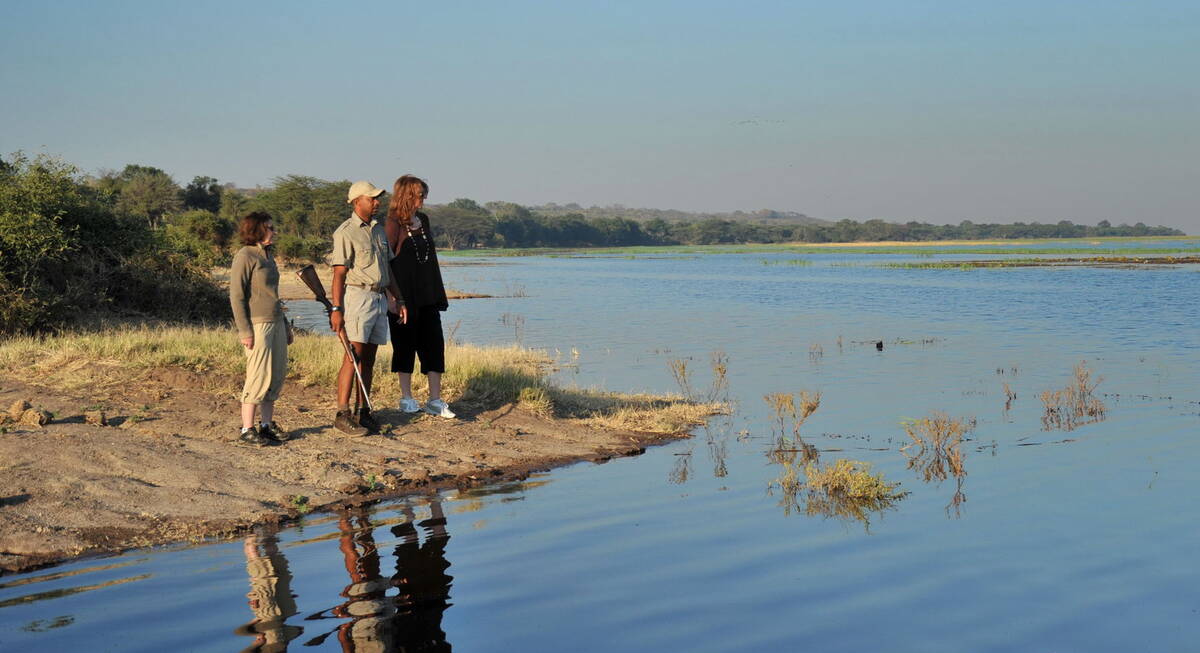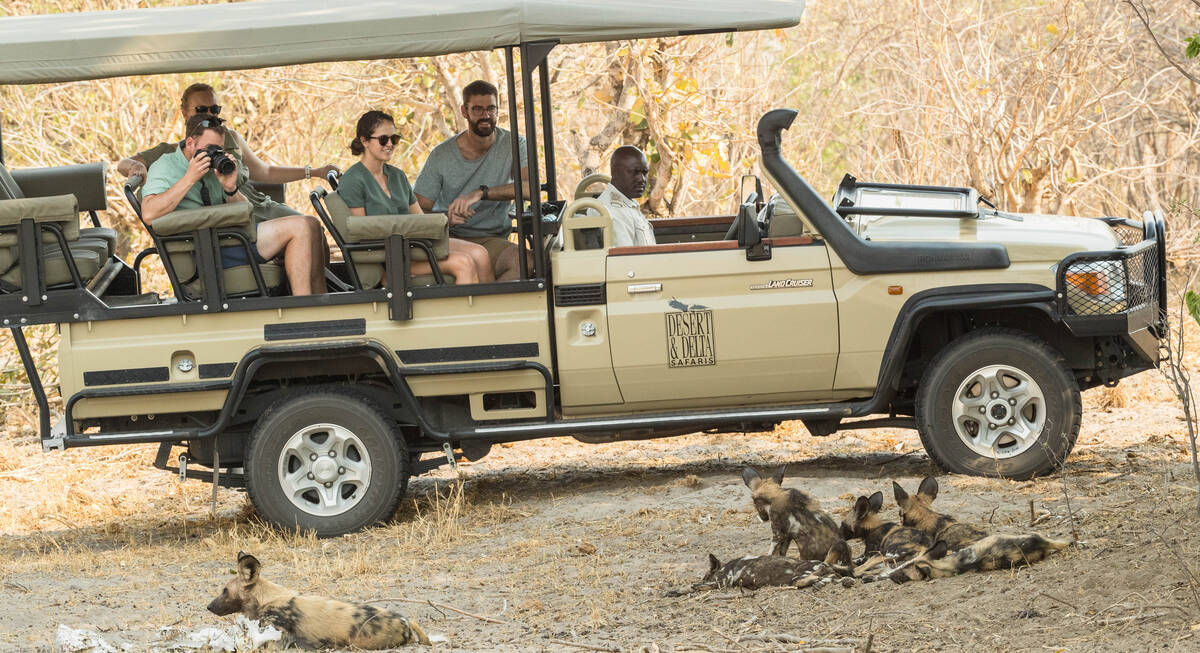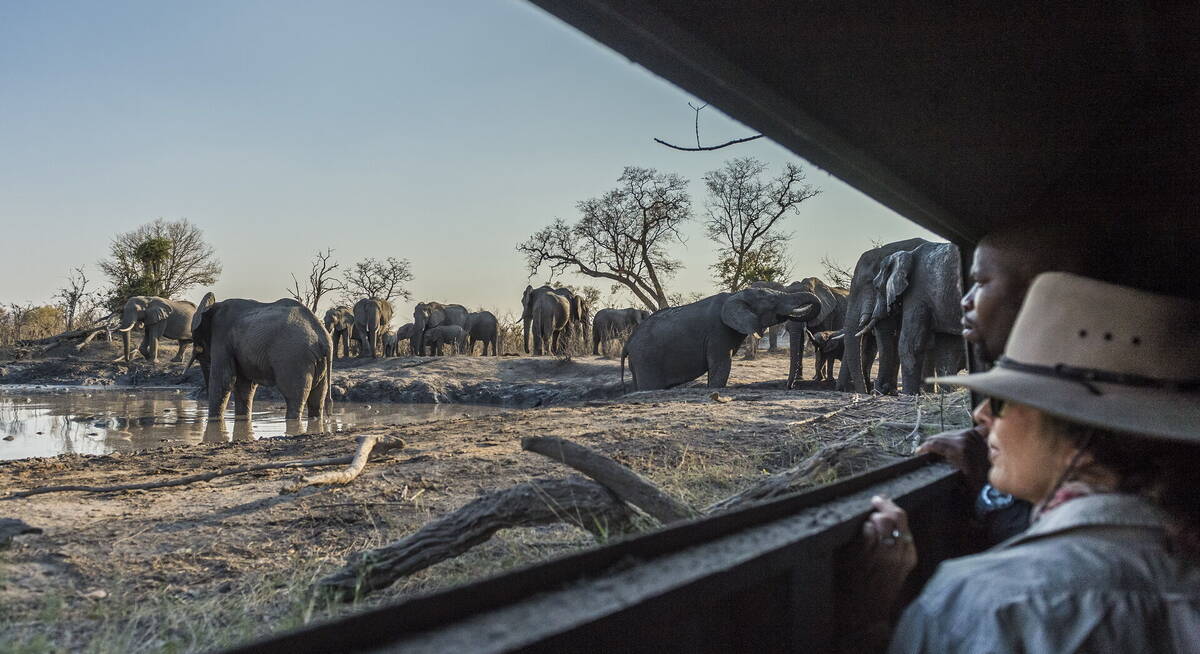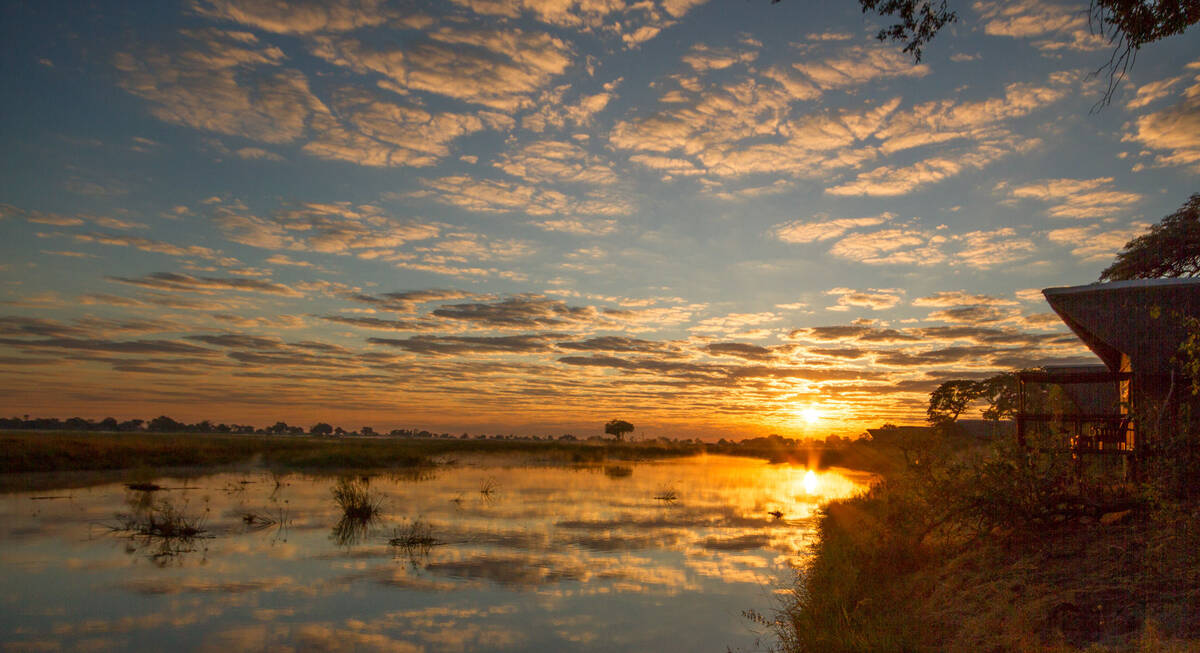Sitatunga in Africa
The sitatunga is the most aquatic of Africa’s antelopes and specially adapted to its swampy habitats. Though widespread across the continent, only a handful of places offer reliable sightings.
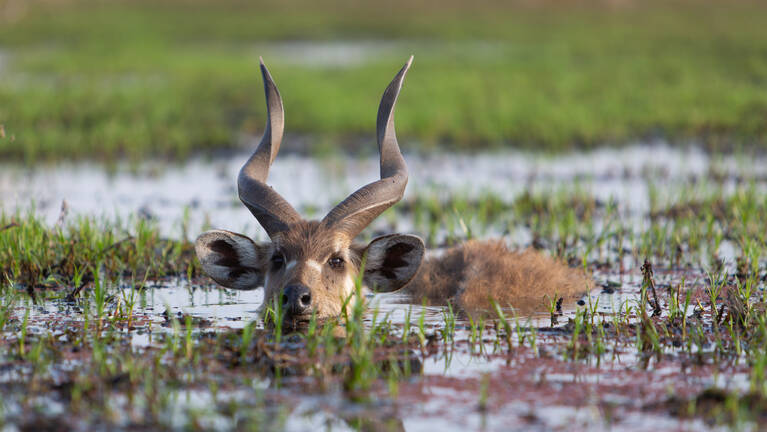
Quick facts about Sitatunga
| Scientific name: | Tragelaphus spekeii | Habitat: | Swamps and swamp forest |
|---|---|---|---|
| IUCN status: | Least Concern | Adult weight: | 24–119kg |
The sitatunga belongs to the spiral-horned antelope tribe (Tragelaphini) and somewhat resembles a plainer, shaggier nyala. The size of a large goat, males are dark brown with twisted horns, and females and young are rufous, patterned with white spots and stripes.
Sitatunga differ from their relatives in their uniquely semi-aquatic lifestyle: they inhabit swampy wetlands and may partially immerse themselves to browse on water plants or escape from predators. Their long fur is water resistant, and their exceptionally long, splayed hooves help them negotiate boggy terrain.
A reclusive species, sitatunga feed in small family parties largely at dawn and dusk, resting up in hidden clearings during the middle of the day.
18cm
Length of front hooves
25
Range countries
±40
Plant species recorded in diet
92cm
Record horn length
Africa's top camps for seeing sitatunga
Based on 72 reports by our travellers since Jun 2018, the camps below have the best chances of sighting sitatunga. Simply follow the key below.
Best chances to see
Good chances to see
Some sightings
No sightings yet
Where to see sitatunga in Africa
Much of Africa’s sitatunga population inhabits inaccessible equatorial regions. Visit the right locations, however, and you might get a lucky glimpse of these shy antelope.
Top tips for viewing Sitatunga
The equatorial swamp forests of central Africa that harbour much of the continent’s sitatunga population remain off the map for most safari-goers. However, sightings are possible in several special locations. These include Saiwa Swamp (Kenya), Bigodi Wetlands (Uganda) and Kasanka National Park (Zambia). The last of these has viewing hides, from where you can observe sitatunga venture into the open at dawn and dusk. Botswana’s Okavango Delta is also a stronghold. Here, sightings are most likely when exploring the waterways by mokoro.
Good photographic opportunities are rare – your encounter may just be a splash or a brief glimpse of a retreating shaggy rump – but in a few tourist areas the animals have become more habituated. Ask your guide for advice.
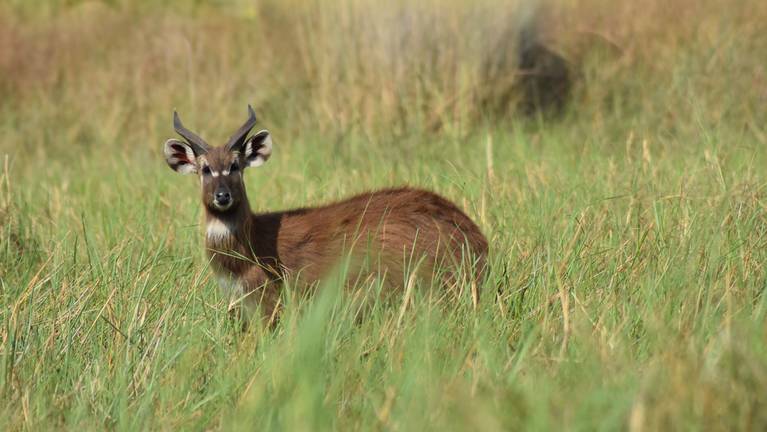
Holiday ideas to see sitatunga
Based on our travellers recent observations, these are the holidays which will give you the best chances of sitatunga sightings
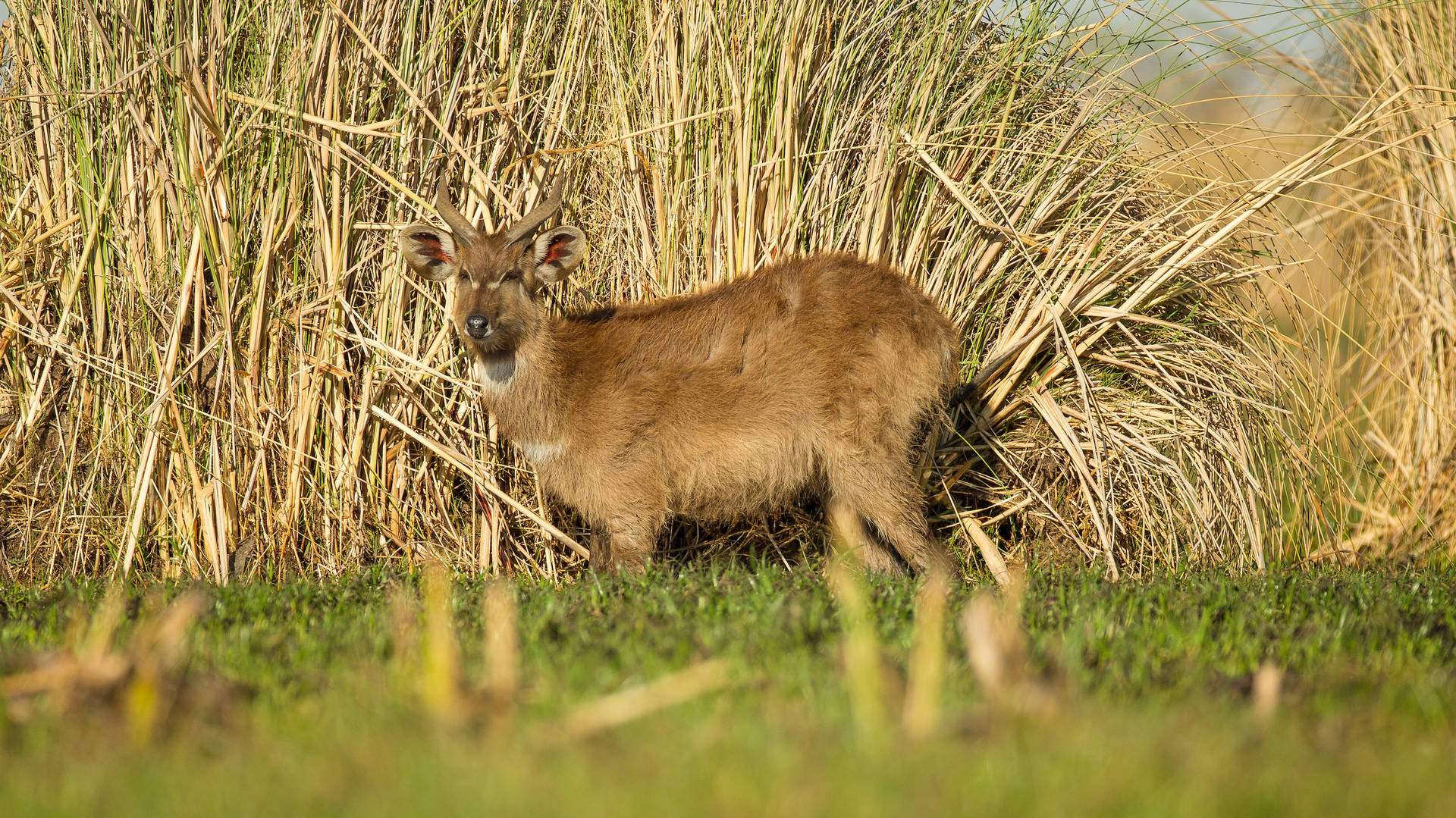
Our top destinations for sitatunga
Click below for detailed information about sitatunga in these countries, including our latest sightings data from the camps and lodges there.
